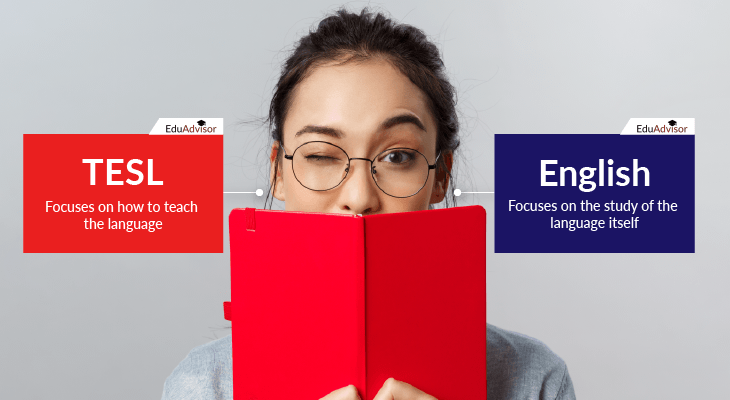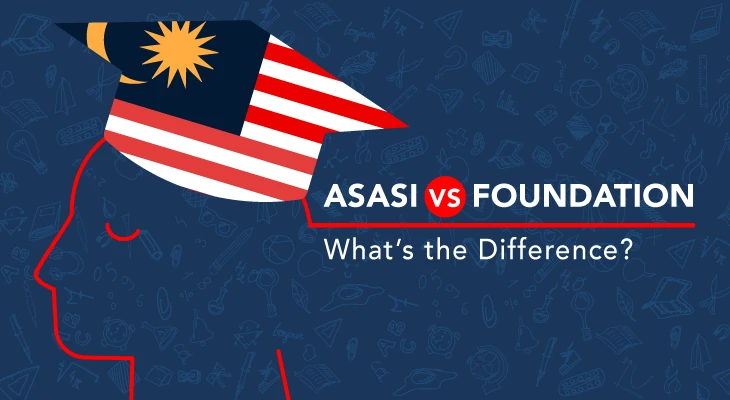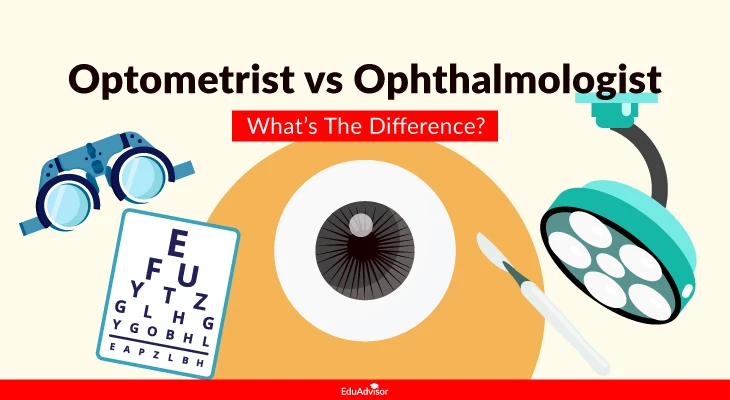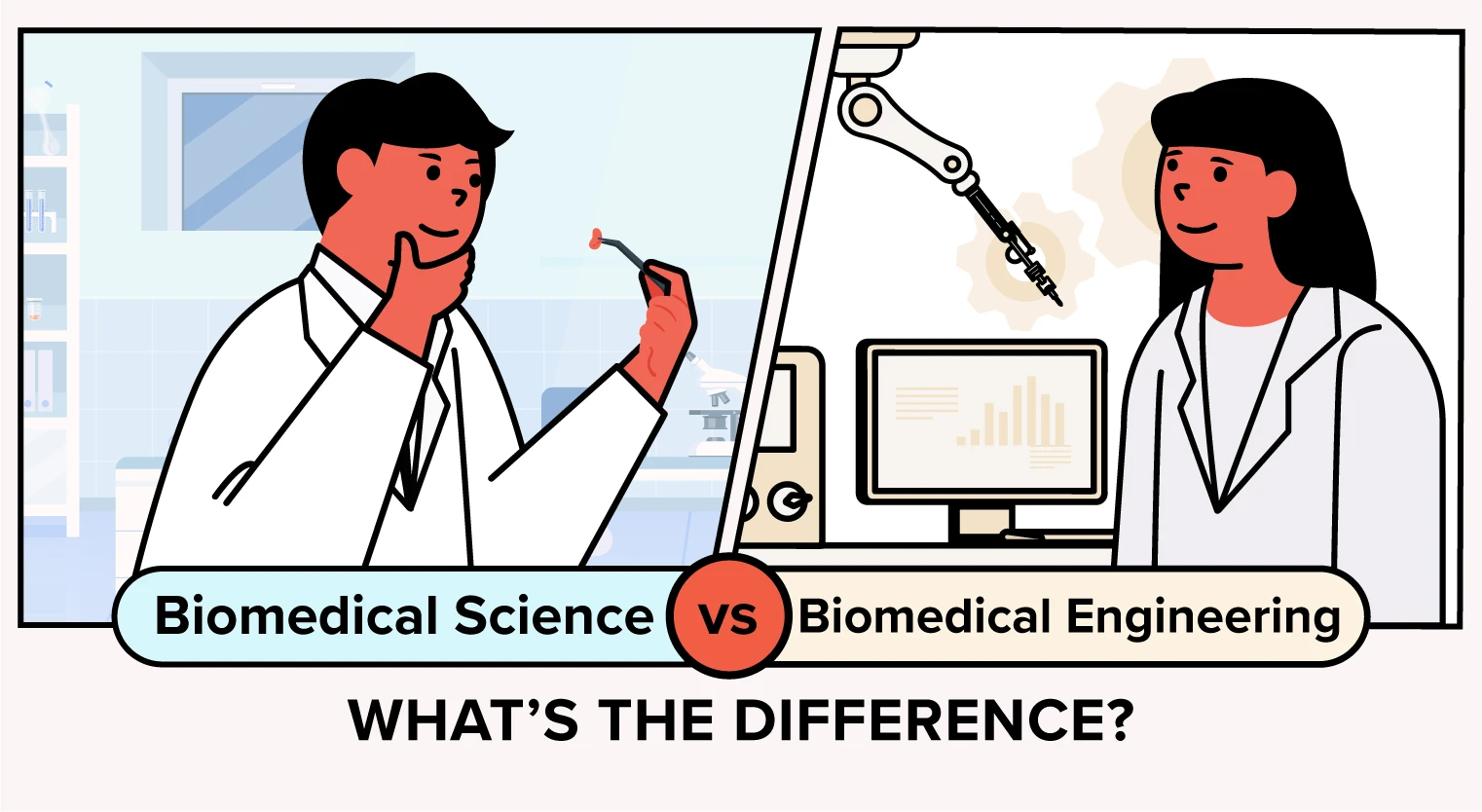TESL vs English: What’s the Difference?
Confused about whether you should study English or TESL? Here are 5 ways in which they differ.
Updated 31 Dec 2021

People often confuse Teaching English as a Second Language (TESL) and English for one another but are they truly the same thing? Do English students study similar subjects as TESL students? Will both courses lead to similar careers?
TESL and English share certain features together but they could not be more different than each other. While both use the English language, that’s about the only similarity they have.
So how do they differ? Find out here.
#1. They are from different fields of study

Both programmes heavily feature the English language but they actually belong to different branches of knowledge.
TESL, short for Teaching English as a Second Language, is a branch of education (i.e. teaching students). It deals with the teaching of English in countries where English is not the first language but is still widely used. In universities, this course will be part of the education faculty.
On the other hand, English is a human science programme. Under this subject, you can choose to focus on any of its various specialisations which include linguistics, applied linguistics or literature. Depending on its focus, the course will either belong in the language faculty, communication faculty or human science faculty.

#2. They have different entry requirements

To qualify for a TESL programme, you’ll generally need a pass in STPM with a minimum of 2Cs in any two subjects (or equivalent). In addition, if you are planning to take the TESL programme in a public university in Malaysia, you’ll also need to pass the Malaysian Educators Selection Inventory (MEdSI) test, a psychometric test that’s compulsory for entrance to any education programmes in public universities. However, there is no such requirement for private universities. Instead, some universities may require you to go through an interview.
In contrast, an English programme often requires you to have better grades in English. Specifically, you’ll need at least a C in English at SPM level or higher and at least a minimum score of 6.0 in IELTS. However, unlike TESL, you will not be required to take any special tests to secure a place in an English programme at public universities.
Apply for university with EduAdvisor
Secure scholarships and more when you apply to any of our 100+ partner universities.
Start now#3. The subject material is different

Although both programmes are related to the English language, they are ultimately different fields and hence, the programme will focus on different things.
Students pursuing a TESL education will learn about subjects like general language teaching methodologies, curriculum design and language testing and evaluation. Essentially, they will focus on not just the mechanism of the language but more importantly, how to teach the language.
On the other hand, an English degree focuses on the study of the language itself. Depending on the university’s syllabus, an English degree can focus on linguistics (the component of the language), literature (the study of literature written in the English language) and communication (the study of English within the context of communication).
#4. TESL graduates can teach while English graduates can’t

There’s a reason why TESL is a separate course from an English programme. Another major difference between the two is whether or not you can use your degree to teach.
TESL programmes are designed to make you competent educators. Upon the completion of your study, you will be eligible for government teaching jobs. Alongside students from Institut Pendidikan Guru (IPG), education graduates make up the majority of teachers in Malaysia.
While English students can still work as private teachers and tutors, they are not certified to teach in government schools. This means that they have limited prospects in the education field when compared to their TESL counterparts.
DID YOU KNOW
Being a teacher is actually a lot of hard work. We bust 7 myths about being a teacher here.

#5. They have different job prospects

Due to the primary focus on education, most TESL graduates opt to work within the education and teaching field. Thanks to your degree, you will be eligible to teach English in both primary and secondary schools, specifically as a DG41 educator in government schools.
As you accumulate more experience, you can pursue other non-teaching positions within the field. Other job options include joining the school administration board, state education department and education ministry.
As an English graduate, you can seek employment opportunities from a wide range of industries. You can choose to go into business, public relations, media and content writing as well as advertising and marketing. Your fluency in the language will give you an edge in the competitive job market.






